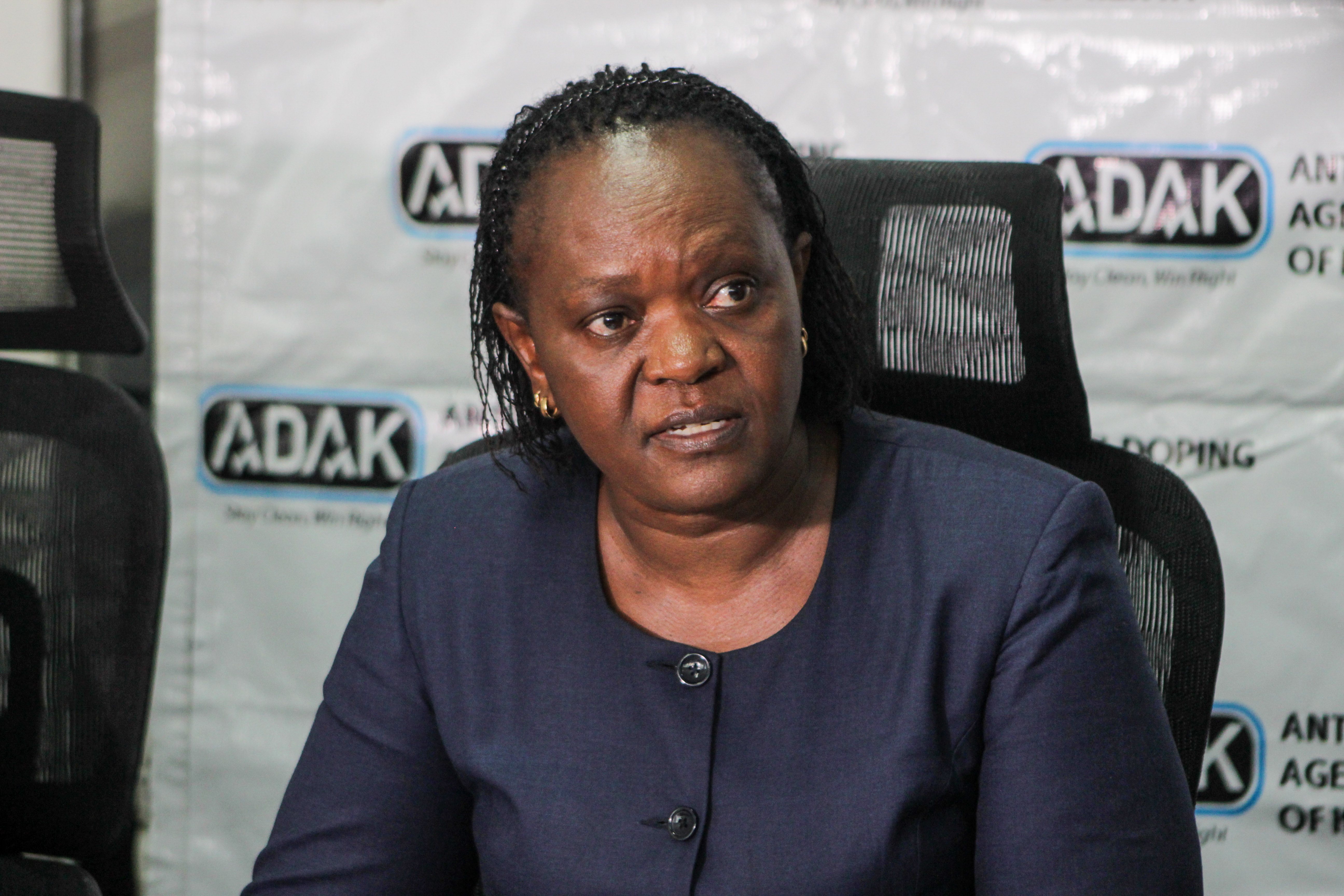
Following a stern warning from the World Anti-Doping Agency (WADA) of a potential blanket ban on Kenyan sporting activities, the Anti-Doping Agency of Kenya (ADAK) has reaffirmed its commitment to work closely with the international body to secure full compliance.
On September 11, WADA’s Executive Committee declared both Kenya and ADAK non-compliant with the WADA Code, following an audit conducted by the global watchdog in May 2024.
The declaration places Kenya’s sporting future on the line, threatening to cripple all competitive activities in the country and casting serious doubt over the nation’s hosting rights for the 2029 World Championships and the 2027 Africa Cup of Nations (AFCON).
In response, ADAK CEO Peninah Wahome issued a strong statement underscoring the agency’s resolve to avert Kenya’s blacklisting.
"ADAK assures all stakeholders—including athletes, sports federations, partners, and the public—that we will continue to work closely with the World Anti-Doping Agency (WADA), the Athletics Integrity Unit (AIU), law enforcement agencies, and the Judiciary to ensure full compliance with the World Anti-Doping Code," the statement read.
The agency further reinforced its uncompromising stance against doping. "ADAK wishes to emphasise ADAK’s zero tolerance for doping and any illegal handling, distribution, or trafficking of prohibited substances."
That declaration was bolstered by a recent victory, where an Indian national was handed a stiff sentence for the possession and handling of prohibited substances, a ruling hailed as proof of Kenya’s robust anti-doping framework.
ADAK welcomed the judgment as a strong signal of its resolve.
"This sentencing reflects the seriousness with which Kenya treats offences related to doping, trafficking, the handling of prohibited substances and also portrays ADAK’s unrelenting commitment to safeguarding the integrity of sport in Kenya and globally."
ADAK cautioned athletes and their support teams against any association with banned substances.
"ADAK takes this opportunity to remind athletes and their support personnel that possession, use, or trafficking of prohibited substances constitutes a violation under the Anti-Doping Act and the World Anti-Doping Code. Violations carry severe sporting, legal, and reputational consequences."















